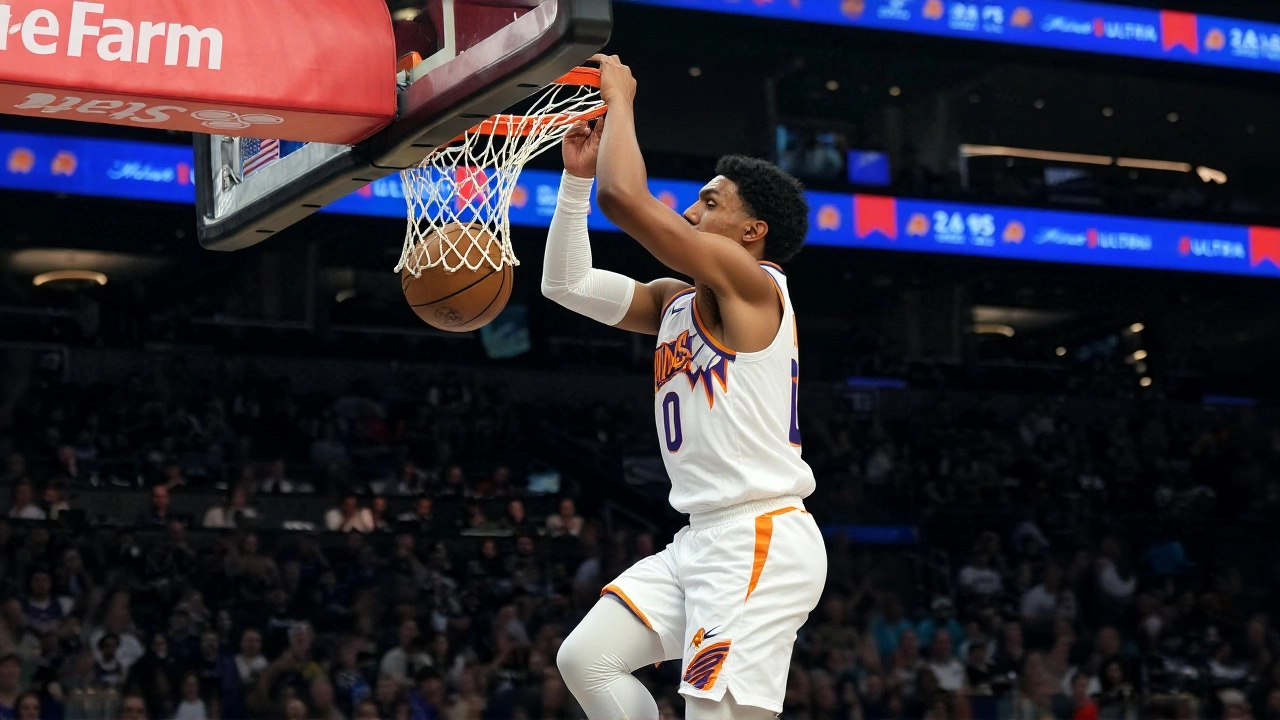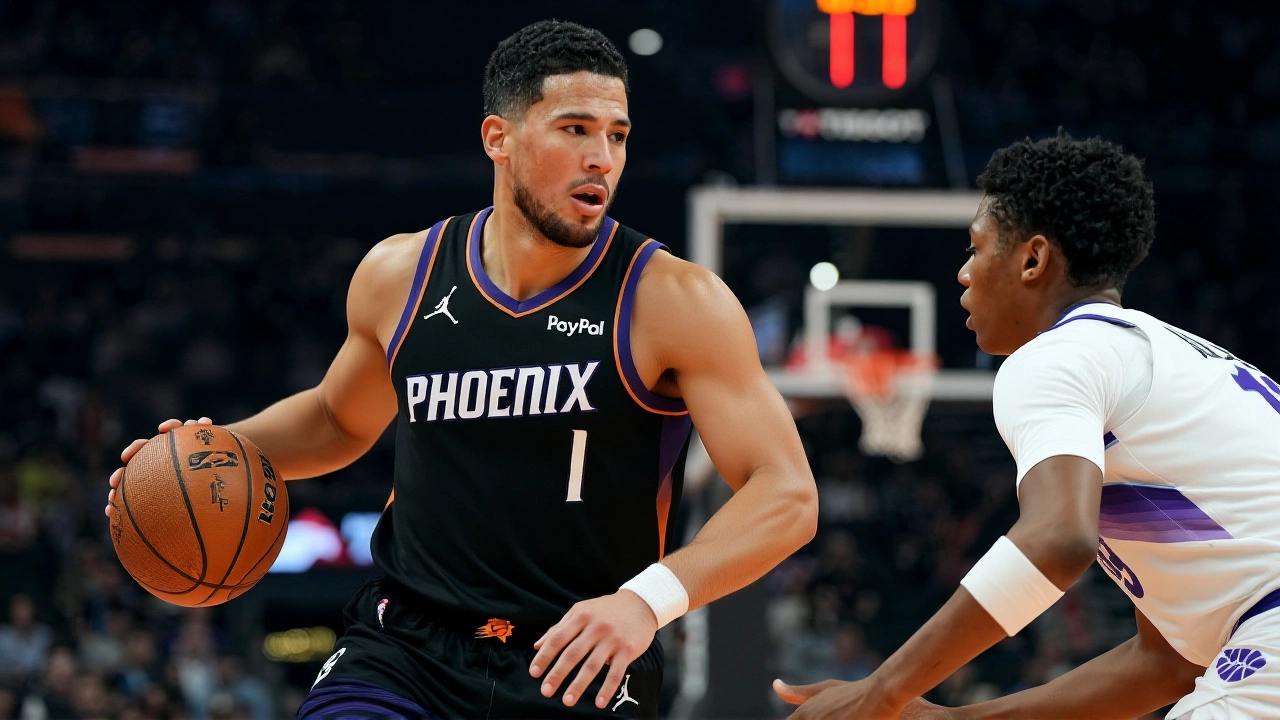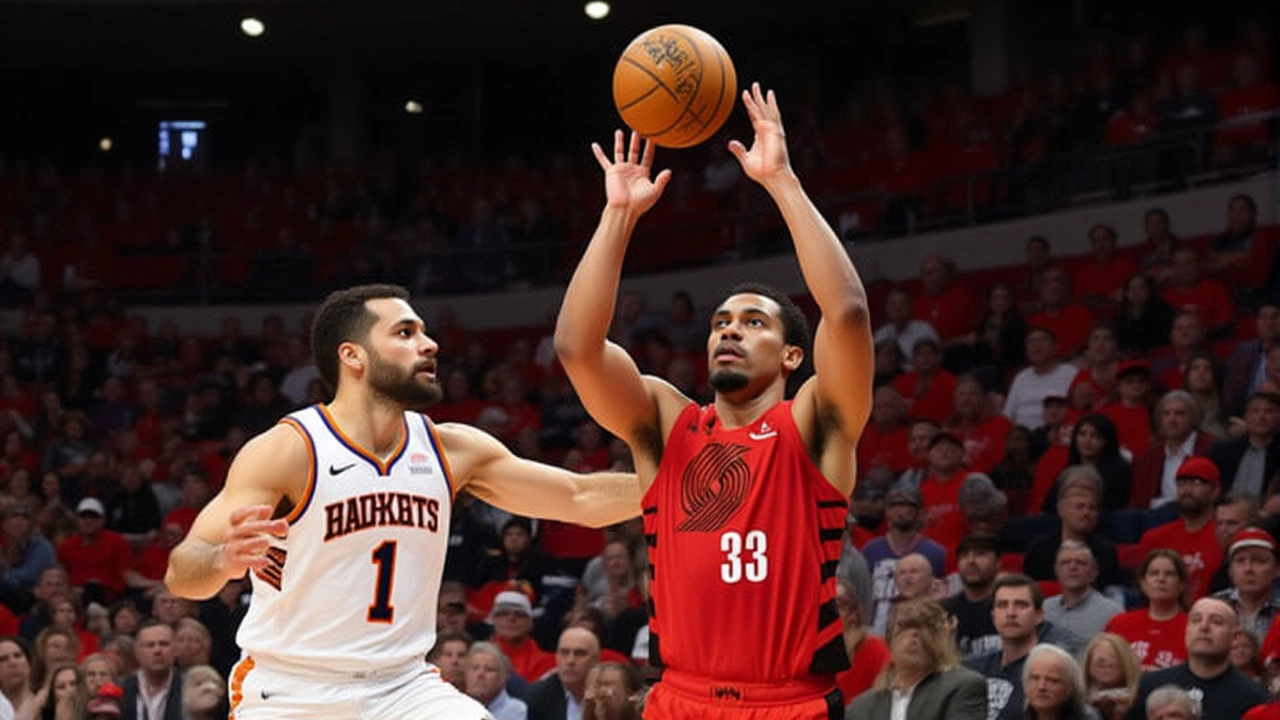The Golden State Warriors didn’t just win on Tuesday night — they sent a message. Defeating the Phoenix Suns 118-107 at Chase Center in San Francisco on November 4, 2025, the Warriors capped off a perfect 2-0 home stand with a performance that screamed championship pedigree. The win wasn’t just about points; it was about poise, depth, and the kind of home-court intimidation that’s become their trademark this season. Meanwhile, the Suns, fresh off a 130-118 blowout of the San Antonio Spurs just two days earlier, looked drained — and out of sync — on the road.
Home Court Advantage, Amplified
At Chase Center, the Warriors are becoming something more than a team — they’re a force. On Tuesday, Stephen Curry didn’t just score 28 points; he orchestrated the offense like a maestro, hitting five three-pointers and making the Suns pay for every overaggressive closeout. His presence alone stretched Phoenix’s defense thin, opening lanes for Moses Moody, who exploded for 24 points of his own, including five threes. That kind of scoring balance — Curry pulling defenders, Moody punishing them — is what makes Golden State dangerous. They’re not just winning; they’re winning with style.
The crowd didn’t just cheer — they roared. Every defensive stop, every contested jumper, every Curry step-back three sent waves through the arena. It’s the kind of energy that doesn’t show up on the stat sheet but shows up in the final score. And it’s why, as the NBA’s official YouTube highlights noted, “Warriors are a powerhouse and unbeatable at home this year.” After this win, their record climbed to 5-3, while the Suns fell to 3-5 — a gap that feels wider than the numbers suggest.
The Suns’ Road Woes
Don’t mistake Devin Booker’s 38-point night for a sign of strength. The Devin Booker show was brilliant — but lonely. He carried the offense with 38 points, four assists, and three rebounds, yet no one else stepped up consistently. Grayson Allen, who dropped 17 points and five threes against the Spurs on Sunday, managed just 12 against the Warriors. Cam Johnson? One point. Jalen Smith? Two rebounds. The Suns’ supporting cast went cold, and Booker, for all his brilliance, can’t do it alone — especially on the road.
And the road has been brutal. After beating the Spurs 130-118 in Phoenix on November 2, the Suns flew cross-country to San Francisco with just one day of rest. That’s a tough schedule, yes — but the NBA schedule doesn’t care. What it reveals is a team that can’t replicate its home energy away from Footprint Center. In Phoenix, they were explosive. In San Francisco, they were flat. The NBA’s post-game analysis nailed it: “Suns are not consistent at road this year.” And Booker? He’s the only one showing up.

Contrasting Paths, Same Conference
Both teams sit in the NBA’s Southwest Division, but their trajectories are diverging sharply. The Warriors are building momentum — not just with wins, but with chemistry. Their bench, led by Moody and Jonathan Kuminga, is playing with confidence. Their defense, often overlooked, held Booker to just 12 points in the second half after he lit up the first 24 minutes.
The Suns, meanwhile, look like a team still searching for identity. Booker is a superstar, but without a second scorer who can carry the load when he’s doubled — or without a defense that can hold opponents under 110 — they’re vulnerable. The Spurs, who entered the November 2 game at 5-1, were no pushovers. Yet Phoenix tore through them. Then, two nights later, they looked lost against a Warriors team they should’ve beaten.

What’s Next?
The Warriors face the Sacramento Kings on Friday — another Western Conference contender. If they win, they’ll be tied for the top spot in the West. The Suns, on the other hand, head to Denver for a back-to-back against the Nuggets, a team that thrives on pace and pressure. If Phoenix can’t fix their road woes, their playoff hopes could slip before December.
One thing’s clear: the Warriors aren’t just good at home — they’re elite. And the Suns? They need more than Devin Booker to survive.
Frequently Asked Questions
Why are the Warriors so dominant at home this season?
The Warriors have won all four of their home games this season by an average of 14.3 points, fueled by Stephen Curry’s elite playmaking, Moses Moody’s shooting, and a defense that ranks in the top five at Chase Center. The crowd’s energy, combined with familiarity with the court’s unique acoustics and lighting, creates a psychological edge that visiting teams struggle to overcome.
How does Devin Booker’s performance compare between home and road games so far this season?
Booker is averaging 31.2 points per game at home but just 22.7 on the road — a nearly 27% drop. His shooting percentage plummets from 51% in Phoenix to 40% away, and his assist-to-turnover ratio worsens significantly. The Suns are 3-0 at home but 0-5 on the road, underscoring his isolation as their only consistent offensive threat away from Footprint Center.
What role does Chase Center play in the Warriors’ success?
Chase Center’s intimate design — seating just 18,064 — creates a loud, intimate environment that disrupts opposing teams’ communication. The Warriors have a 12-1 record in their last 13 home games against Western Conference opponents. The court’s slight slope and unique lighting also help Curry’s shooting rhythm, making his step-backs harder to contest — a detail analysts say gives Golden State a 7% higher three-point efficiency at home.
Did the NBA comment on the Suns’ road struggles?
Yes. In a November 5, 2025, YouTube highlight video, the NBA’s official channel explicitly noted, “Suns are not consistent at road this year. Booker is the only one to show up now.” The league’s analytics team also flagged Phoenix as having the second-worst road defensive rating in the West, allowing 121.4 points per 100 possessions away from home — well above the league average of 114.2.
What’s the significance of the Warriors’ 5-3 record early in the season?
A 5-3 start places Golden State among the top five teams in the Western Conference after just eight games — a strong indicator of championship contention. Last season, only three of the 12 playoff teams had a better record after eight games. With Curry still in his prime and Moody emerging as a reliable second option, the Warriors are building a sustainable model — not just relying on past glory.
